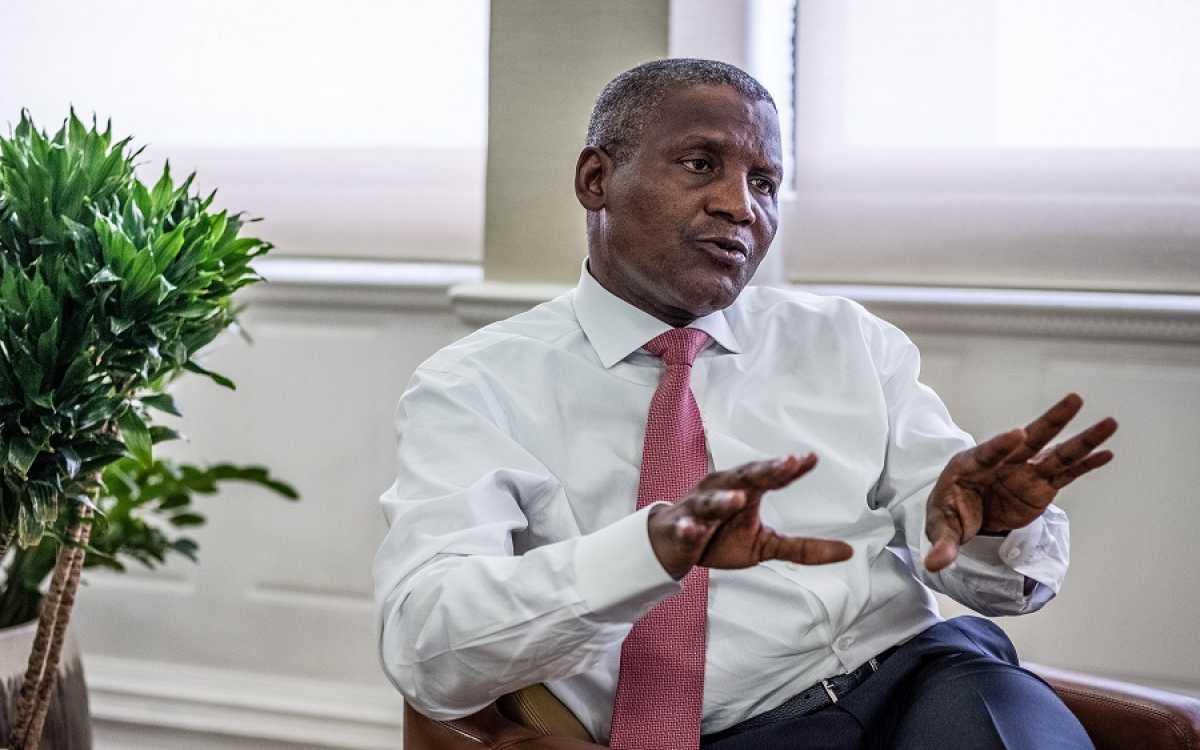Business
Dangote Offers Nigerian Government Opportunity to Take Over Refinery Amidst Monopoly Allegations

In a bold move aimed at quelling ongoing allegations of monopolistic practices, billionaire businessman Aliko Dangote has proposed to sell the Dangote Refinery to the Nigerian National Petroleum Corporation Limited (NNPCL). Speaking in an exclusive interview with Premium Times, Dangote expressed his willingness to divest from the refinery, suggesting that such a transition could alleviate concerns regarding monopolistic behavior within the Nigerian oil industry.
The Dangote Refinery, which boasts a production capacity of 650,000 barrels per day, began operations last year and is viewed as a pivotal asset in addressing Nigeria’s chronic fuel supply issues. However, accusations have surfaced suggesting that Dangote’s involvement in the refinery has made him a target for claims of monopolization.
Dangote stated, “Let them (NNPCL) buy me out and run the refinery the best way they can. They have labeled me a monopolist. That’s an incorrect and unfair allegation, but it’s OK. If they buy me out, at least, their so-called monopolist would be out of the way.” He made it clear that he is prepared to remove himself from the picture to foster a more equitable market.
These comments came in the wake of remarks made by Farouk Ahmed, the Chief Executive Officer of the Nigerian Midstream and Downstream Petroleum Regulatory Authority (NMDPRA). Ahmed accused the Dangote Refinery of attempting to monopolize the fuel supply by requesting the regulator to halt import licenses for other marketing agencies, thereby positioning the refinery as the sole supplier of fuel in Nigeria. In response, Ahmed expressed that relying on a single refinery for the nation’s fuel supply could compromise energy security and foster monopolistic tendencies.
“We cannot rely heavily on one refinery to feed the nation, because Dangote is requesting that we should suspend or stop the importation of all petroleum products, especially AGO and direct all marketers to the refinery,” Ahmed stated, adding that this approach is detrimental to the market.
In addition to these allegations, Ahmed further criticized the quality of products coming from the Dangote Refinery, asserting that its diesel quality does not meet industry standards. He mentioned that while the refinery’s diesel currently exceeds the West African limit of 50 parts per million (ppm) for sulfur content, it fell significantly short of imported diesel quality.
Amid these regulatory pressures and public scrutiny, Aliko Dangote reflected on the challenges facing his refinery during an interview. He acknowledged that his associates had advised caution in investing heavily in Nigeria’s economy, highlighting the unpredictable nature of the local business environment.
“As you probably know, I am 67 years old, in less than three years, I will be 70. I need very little to live the rest of my life. I can’t take the refinery or any other property or asset to my grave. Everything I do is in the interest of my country,” Dangote remarked. His commitment to Nigeria is clear; however, he believes it may be time to pave the way for others.
The challenges faced by the Dangote Refinery are compounded by a wider dispute involving NMDPRA, which recently accused the company of supplying substandard diesel fuel. In response, Dangote has pushed back, asserting that lab tests demonstrate that his diesel meets industry standards, with a sulfur content of 87.6 ppm—far below the claims made by Ahmed.
Dangote’s refinery has entered into agreements to secure crude oil supplies from both Brazilian and American producers, mitigating initial challenges in sourcing crude oil. The switch to alternative suppliers is critical for maintaining operations while local supply channels are solidified. Since commencing operations last year, the Dangote Refinery has received 6.9 million barrels of oil from NNPC, laying groundwork for a potential partnership should the state-owned company take over the facility.
Despite the ongoing challenges, Aliko Dangote remains optimistic about the refinery’s potential to transform the Nigerian energy sector. He has emphasized the importance of contributing positively to Nigeria’s economic landscape, stating, “This refinery can help in resolving the problem but it does appear some people are uncomfortable that I am in the picture.”
As part of a broader strategy to mitigate allegations of monopolistic practices, Dangote has announced plans to discontinue investments in Nigeria’s burgeoning steel industry. He stated that the move is designed to avoid accusations of monopolization in a field that is experiencing significant growth.
Aliko Dangote’s proposition to sell the Dangote Refinery opens new discussions regarding the future of Nigeria’s energy sector. His willingness to remove himself from ownership amidst allegations of monopoly demonstrates a commitment not only to his business interests but also to the broader economic health of Nigeria. The outcome of these negotiations remains to be seen, but they undoubtedly stand to impact the trajectory of Nigeria’s fuel supply dynamics.












